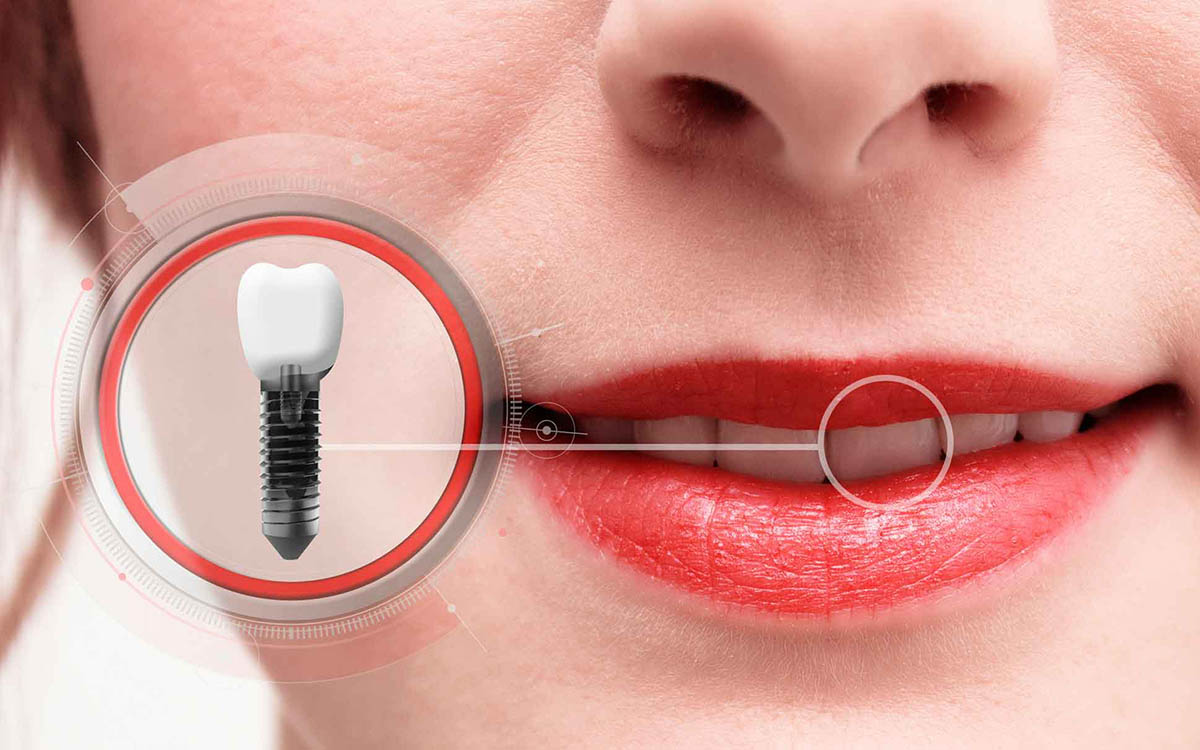Have you given any thought to replacing your lost tooth? Our smiles are made up of our teeth and gums. They are the cornerstone of our confidence and are essential to how we feel about ourselves. We attempt to close the gap left by lost teeth. Dental implants are one of the most dependable and durable methods that dental clinics are currently giving to restore smiles.
However, because this procedure includes placing an artificial tooth root in the jawbone, discomfort is nearly always a side effect. Many dental patients are concerned about how much pain they will feel following this procedure and how long it will linger before having it done. Is dental implant painful?. This simple procedure just affects the gums. The pain from having the abutment installed is less intense than any pain felt after placing the metal post, albeit it may result in some bleeding and swelling.
Does a dental implant surgery hurt?
Your gums and jaw may experience some little trauma when a dental implant is implanted. But, because your dentist uses a local anesthetic, you shouldn’t experience any pain during the procedure.
The procedure at Dentist For Life for the surgical stage of a dental implant lasts about an hour and involves
- Numbing the area with a numbing gel before administering local anesthetic.
- Creating a cut in your jawbone with the aid of 3D technology. You shouldn’t experience any pain when your dentist drills a place for the implant because your jawbone has no nerves, although you could feel some pressure.
- The dental implant is inserted into your jawbone.
- To protect the dental implant while it integrates with your jawbone by covering it with a healing cap.
- The area was stitched up.

Pain after a dental implant
Following dental implant surgery, you’ll undoubtedly have some pain or discomfort, but it shouldn’t last more than a few days. After the local anesthetic from the surgery wears off, the pain could feel more severe. Pain will probably be felt close to where the dental implant is.
Additional side effects following dental implant surgery include: Jaw pain, slight bruising, swelling around the gums and face and bleeding around the surgical site.
Read more: How is the dental implant procedure?
How Long Does the Pain Last After a Dental Implant?
If everything heals as it should, pain following a successful dental implant treatment should only last a short time. Following the treatment, your pain may linger for 3 to 5 days. It’s possible that you simply need to take painkillers for one or two days.
If you feel up to it, you might be able to pick up where you left off the day after the surgery. You can experience jaw stiffness, bruising, and swelling for a while longer. Following the procedure, these symptoms should go away in 7 to 10 days.
Causes of throbbing pain after the dental implant procedure
It’s unusual to feel excruciating pain for a long time following a dental implant treatment. Once the anesthesia wears off a few hours after the treatment, you can have more intense pain; nevertheless, this pain should pass with time and with the help of painkillers.
After the treatment, a complication that causes more discomfort could arise. Your oral surgeon or dentist has to evaluate these situations right away.
Incision line opening
This is one of the most frequent issues that arise after implant surgery. That happens after surgery when the tissue around the rod reopens.
If the wound opens, you can experience discomfort or irritation. To prevent infection, your oral surgeon could advise you to take an antibiotic or to rinse your mouth many times daily with a chlorhexidine solution. If the discomfort doesn’t go away, you might require more medical attention.
Improperly fitted implant
Pain or discomfort could indicate that the implant isn’t properly fusing to the bone. It could be necessary to take out the implant and then reattach it later.
Infection
When germs infiltrate surgically affected tissue and hinder its ability to heal, an infection results. The wound site could reopen or not heal at all.
Other signs of dental implant complications
In addition to discomfort, you might encounter additional symptoms, which could indicate post-procedure problems. If you suffer any of the following, call your oral surgeon or dentist right away: many hours after the procedure, you develop a fever, worsening vomiting or nausea, persistent swelling, and profuse bleeding.
How Long Does It Take to Recover from Dental Implants?
Everyone recovers differently from dental implant surgery. There is a lengthy recovery time following the initial stage of your surgery. While some patients may recover within three months with little discomfort and edema, others may require the whole six months and experience severe symptoms. The complexity of your surgery may also influence how long it takes you to recuperate.
It is best to go by any directions our staff may provide you in order to shorten the recuperation time. Take it easy, consume soft foods, apply cold compresses, and take over-the-counter painkillers. The remainder is very simple once you have your restorations. Your recovery process may differ because this method is a two-step process.
Find out more: 50 soft foods to eat after dental surgery

How to reduce pain and discomfort after dental implants?
There are several ways that patients can reduce discomfort after dental implant surgery. We recommend that you:
- Avoid strenuous exercise for at least 48 hours after surgery. When the heart rate is elevated, it can result in increased bleeding, swelling, and pain. For this reason, we recommend waiting a couple of days to work out or perform any heavy lifting.
- Steer clear of aspirin and other blood-thinning medications. Certain over-the-counter medications and herbal supplements may cause more bleeding. Ask your doctor which pain medications are safe after dental implant surgery.
- Apply ice packs to reduce swelling. During the first day, apply a cold compress to the face in the area where the implant was placed. Leave it on for 20 minutes, then remove it for 20 minutes. This will help reduce inflammation and discomfort.
- Take all medications exactly as directed. Your doctor will likely prescribe you medications. These may include antibiotics and pain tablets. He or she may also recommend that you take over-the-counter medications to reduce inflammation and discomfort. To stay ahead of the pain, be sure to take all medications as instructed by your dentist.
- Avoid hard, crunchy, and tough foods. For the first few days after dental implant surgery, it is a good idea to avoid foods such as popcorn, nuts, and hard bread.
- Keep the area clean. Though you will not be able to brush the surgical site for a few days, it is still important to keep the area clean. Often, your doctor will recommend an antibacterial mouthwash to keep harmful microbes at bay.
Conclusion
Any kind of surgery can be terrifying. You can be too concerned about the sutures, drilling, or other surgical procedures. In the end, receiving dental implants shouldn’t cause you any pain. During your rehabilitation, you shouldn’t experience a lot of pain. For more information on dental implants and the installation procedure, get in touch with Dentistry at Marysville.



